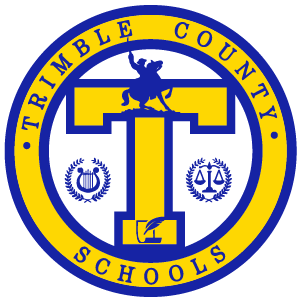HOW TO USE GOOGLE CLASSROOM AS A STUDENT
HOW TO LOG IN AS A STUDENT
Go to any Internet Browser (preferably Google Chrome)
Go to classroom.google.com and click Login
Enter your Google username (same as School Network Login) and click Next
Enter your password (same as School Network Password) and click Login
Click Student
You are now Logged In!
Note: If you want to add an account, you have to on your account and click Add Account.
HOW TO JOIN A CLASSROOM
When you’re at the Home page, next to your name, there is a “+”
Click on the “+”
A Pop-Up will ask for a class code, ask your teacher for your class code and enter it
You are now in a class!
COMPLETING ASSIGNMENTS
Open the proper class
The assignment should be there
Click Open on the assignment
Your teacher should tell you to Create a Docs, Slides, Sheets, etc.
To do the above, Click Create. (It should give the options above.)
Then, you should be able to do your assignment!
If the assignment does NOT require you to submit a “product” (file), you can still indicate that you completed the work. Google Classroom gives the student the option to “Mark as Done” so the teacher will know that the student has completed the assignment. A teacher might assign Chapter Two for reading and ask the student to indicate that the Chapter has been read. In that case, you can just click “Mark as Done”.
HOW TO SEE YOUR ASSIGNMENTS FOR CLASSES
From the Home page, click on the three lines in the top-left corner
Click “Enrolled”, directly under that, click on Work
OR
Go to Stream on the left side and there should be a list of “work” to do.
Click on the Assignment that is to be completed.
USING STREAM
Stream is the default view in Classroom. You can see posts from the teacher and other students in Stream. You can share posts with your class or comment on an item. Here’s how to use Stream.
Choose the “class”.
“Stream” is the default view for all classes.
Scroll down to see entries by the teacher and other students.
Create your own posts by clicking the “+” in the bottom right and then clicking “Create Post”.
When creating a post you have the option to attach items
Attaching a file
Attaching an item from Google Drive
Attaching a YouTube video
Attaching a link
HOW TO USE GOOGLE CLASSROOM AS A TEACHER
HOW TO LOG IN AS A TEACHER FOR THE FIRST TIME
Go to classroom.google.com
Choose an Account- Click Sign In
Enter teacher e-mail (You will have to Login twice.)
Google Apps- Click Use Another Account
Enter teacher e-mail and teacher password
You are now Logged In!
USING STREAM TEACHER'S PERSPECTIVE
Login to your classroom
Once you are logged in, you will automatically see “Stream”
In the bottom right corner, there is a “+”, click it
You will then have four options:
Reuse Post
Create Question
Create Assignment
Create Announcement
Reusing a post:
Click the student's name that has shared the post wanting to be reused
Click on the post you would like to reuse
Share the post
Creating a question.
Type the question that is wanted to be asked
There is an instructions option where you can have the students answer in a certain format or wording
Assign a due date
Type of answer? You can have the students answer in a short answer format or multiple choice
There is also the option of the students replying to each other and also students editing the answers
Creating an assignment
Title the assignment with the name wanting
You may also attach items such as
A file
An item from Google Drive
A YouTube video
A link
Creating an announcement
You may share anything with your classroom
You may attach items, also (same items from above)
EXTRA INFORMATION
If for any reason there are no laptops or computers available, there is a “Google Classroom” app that you can download to your smart device.
Students and teachers can use the Share to Classroom Chrome extension to share web content. Teachers can use it create and share assignments and announcements as well. For details about using the share to Classroom Chrome extension, see the article on sharing for teachers or for students.
Administrators can turn off Classroom for their domains or for specific organizational units, similar to how you disable other services.
